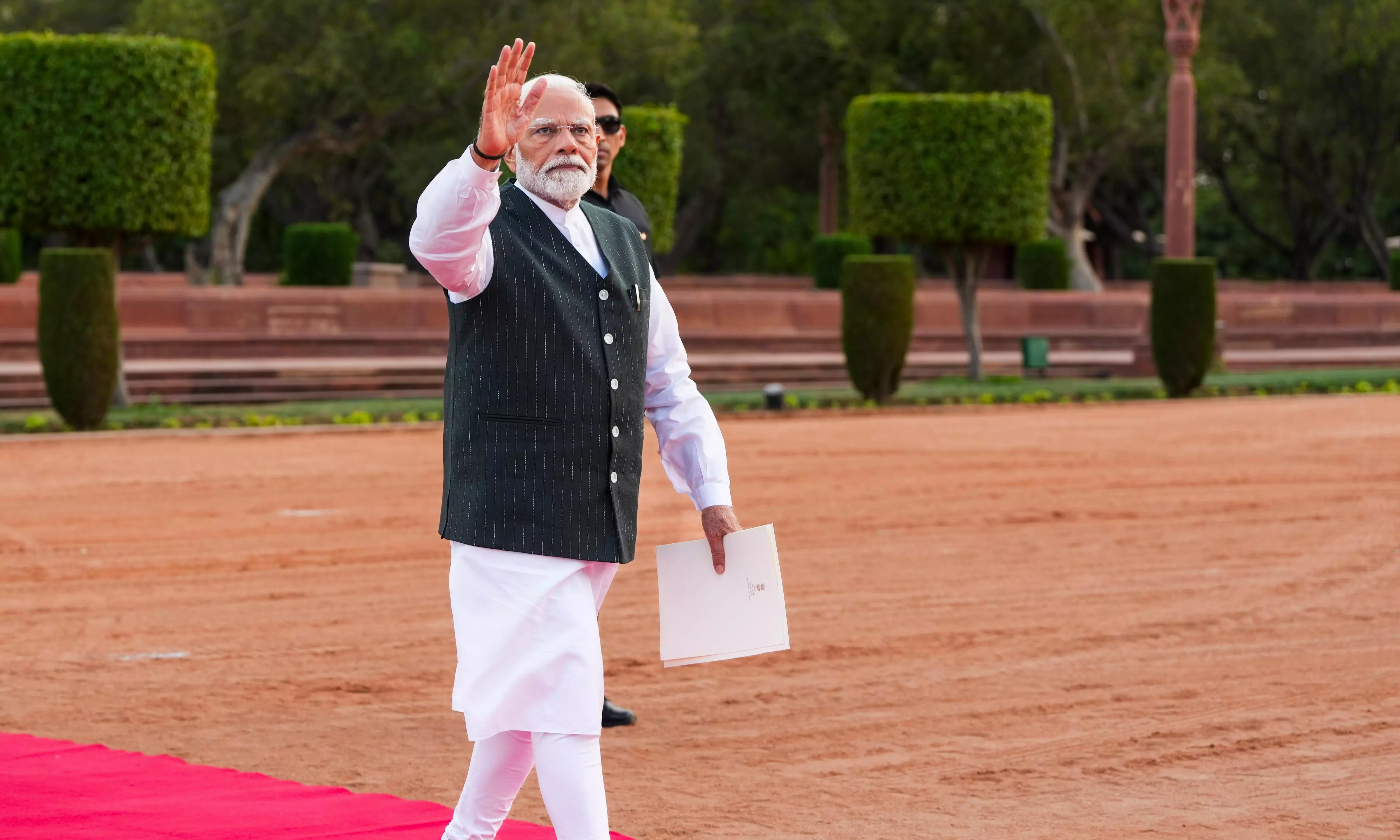
Why did BJP not call for a parliamentary board meeting after elections?
Despite PM Modi's unanimous re-election by all 15 NDA allies, BJP leaders are puzzled by the delay in convening the parliamentary board

After two days of deliberation among all the members of the National Democratic Alliance (NDA), Prime Minister Narendra Modi was unanimously elected as the leader of the ruling alliance by all 15 allies. While this decision initiates the process of forming the government for the third consecutive term, leaders of the Bharatiya Janata Party (BJP) remain intrigued by the absence of the parliamentary board in the government formation process.
According to BJP norms, after election results are announced, the BJP president calls a meeting of the parliamentary board to announce the leader. Following this decision, the leader is elected in the legislative party meeting. However, three days after the election results, there is no clarity on when the parliamentary board is scheduled to meet.
Parliamentary board meeting
The 11-member parliamentary board is the highest decision-making body of the BJP, responsible for all important decisions before presenting them to alliance partners. "It is intriguing that the parliamentary board has not met even after so many days of the election results. Normally, the board meets on the same evening the results are announced. Most BJP leaders are surprised that this meeting hasn't happened. The BJP is a cadre-based political party, and not following rules does not go unnoticed," a senior BJP leader told The Federal.
Senior BJP leaders are not just surprised by the absence of the parliamentary board; many believe that the board members would have elected PM Modi as the leader of the BJP. "The present composition of the parliamentary board is such that there would be no contradiction to the will of PM Modi. He is the biggest leader of the BJP, and the board would have unanimously elected him. Yet, the board members have not asked for a meeting," the BJP leader said.
Govt formation prioritised
Some senior leaders suspect the delay in the parliamentary board meeting is due to the priority given to government formation. Since the BJP did not secure a majority on its own for the first time in a decade, forming the government was prioritised over party technicalities. "What is the point in saying there is a delay in following some rules? These are technical issues. The election was fought under PM Modi's leadership by all NDA partners, so he is the leader of the NDA. Even if the parliamentary board had met, they would have elected PM Modi as the leader. There is no problem in all this. Members of the Congress-led alliance were trying to get in touch with some NDA members, so government formation was the priority," Dilip Deodhar, a Nagpur-based commentator and observer of RSS issues, told The Federal.
The dismal performance of the BJP in Uttar Pradesh, Maharashtra, and West Bengal has also caught the attention of the Rashtriya Swayamsevak Sangh (RSS). Senior RSS leaders have asked the BJP top brass to address internal differences between chief ministers and national leaders. "It is no secret that some BJP leaders, including cabinet ministers and chief ministers, do not get along. This infighting has benefited the India alliance in Uttar Pradesh and Maharashtra," Deodhar added.
Senior RSS leaders want all BJP leaders to work together at the state and national levels, preventing internal conflicts.
Setback makes BJP rework strategy
The setback in the Lok Sabha elections has forced the BJP leadership to rework its strategy in states with upcoming Assembly elections in the next 18 months, notably Maharashtra and Haryana. The BJP's poor performance in Maharashtra suggests PM Modi should reach out to Uddhav Thackeray and try to bring him back to the NDA. The situation is similar in Haryana, where the BJP broke its alliance with the Jannayak Janata Party (JJP) before the elections. "I am convinced that if PM Modi makes an earnest effort to speak to Uddhav Thackeray, he will respond positively, and the alliance partners will be together again. The BJP needs Thackeray's help to defeat Sharad Pawar and Congress," Deodhar further said.
Senior RSS leaders have held at least two meetings with the BJP leadership in Delhi since the election results were announced, suggesting the BJP should try to bring back all its former allies, including the Shiromani Akali Dal (SAD). "The problem with Uddhav Thackeray and SAD is that both alliances broke because the BJP leadership stopped considering their concerns. If the current leadership can be more attentive to allies' issues and give them more space, the BJP may revive its alliances with these parties," said the BJP leader.

